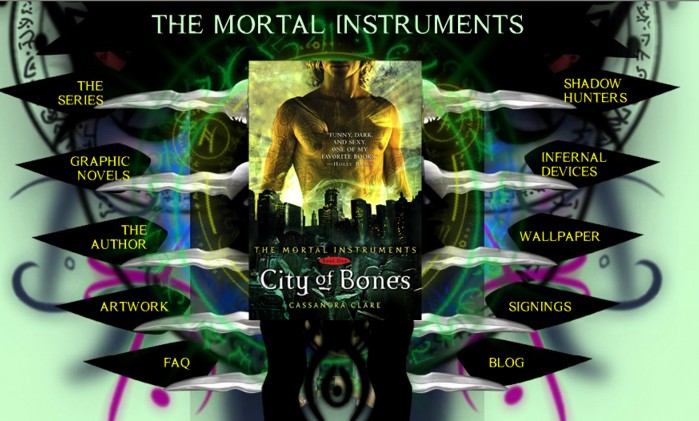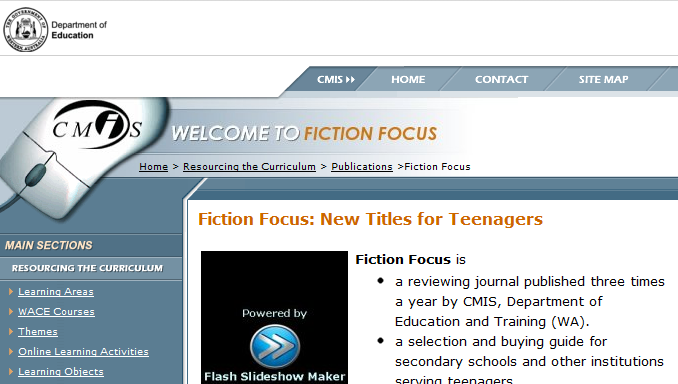
Photo courtesy of Eliselovesprada on Flickr
Marie Salinger just shared with me an excellent blog post written by Andrew Douch, No learning for unauthorised persons. Andrew expresses his disappointment in the fact that many teachers are reluctant to share what they create for their students’ learning. I recommend that you read the entire post.
In my comment following Andrew’s post, I mention that my role as teacher librarian automatically puts me in the position of finding and sharing resources, and that I don’t see why I shouldn’t share outside my school, or even outside my country. Since forming a personal learning network on Twitter, Facebook, Delicious, Diigo and similar networking platforms, I’ve realised that what I share with others is a drop in the ocean compared with what I receive. If only all teachers would experience this.
My blogs and wikis are also a way of sharing ideas, resources and discussions which would otherwise only be shared with a couple of colleagues or not at all. It seems that blog authors find all manner of things useful and edifying, and write about these. I’ll often share resources this way, or even re-post from someone else’s blog if I think it’s worth passing on and giving my two cents worth.
More problematic is the sharing of material which I’ve read in a hard-copy publication. Currently, I’m reading the current edition of Fiction Focus: New titles for teenagers published by Curriculum Materials Information Services, WestOne Services, Department of Education and Training, Western Australia. It’s a teacher librarian’s treasured resource, providing excellent critical reviews of adolescent fiction, as well as reviews of resources of professional interest to teachers. I’m also reading the Centre for Youth Literature Newsletter published by the State Library of Victoria.
It’s frustrating for me to read these excellent resources and not share them online. What may normally occur is that we read them and take out ideas and resources for our own practice, or at best, email a few teachers if we think there is something of interest for them.
So what’s problematic? Well, it’s common practice to re-post online content written by someone else because you can give a synopsis and hyperlink to the actual resource; you don’t have to do more than give a quick summary of the original post since the reader can go directly to the source for more detailed information.
Not so in this instance. I would really like to feature some of the articles in these publications, but how much should I say? I don’t want to overload my readers, and I can’t presume they will obtain the hardcopy publications. I’m not sure if the publishers will consider my efforts a breach of copyright.
For example, there’s an excellent special feature in Fiction Focus, Wow websites – book inspired web wonders, which links to Young Adult fiction websites which
use high quality art and web design to create spaces and interfaces that reflect the character of the fiction that they represent,
providing
spaces for young readers to do what they have always done: play, discuss and imagine…
I applaud the promotion of such websites because I’ve realised that reading becomes an experience when adolescent readers become involved in the art, interactive activities and games, author blog and videos. Providing such websites increases the chances of hooking young people into reading fiction.

Here are the links to author websites provided by this article:
P.B.Kerr’s site, Quertyuiop
Angie Sage’s Septimus Heap series
Cassandra Clare’s Mortal Instruments series
Anthony Horowitz’s Alex Rider series
Charlie Higson’s Young Bond series
Robert Muchamore’s Cherub series
For Picture Book authors, there are links to the following websites:
Shaun Tan
Matt Ottley
Chris Priestley’s Tales of Terror Gothic feel site
Darren Shan
The Bad Tuesdays
Scott Westerfeld’s new Steampunk-inspired website
The selected works of T. S. Spivet by Reif Larsen
The CMIS Fiction Focus blog include more extensive links to more blogs and websites of young adult authors and illustrators.
Fiction Focus also has an excellent article on Steampunk,
a sub-genre of fantasy and speculative fiction. At the core of steampunk is the notion of altered history (often Victorian and London-Victorian at that) combined with technology that is historically impossible, and therefore all the more intriguing.
There are great links included, so you can see my dilemma – I’d like to share all these wonderful resources with people, but I really think they should subscribe to the magazine, or even, the magazine should go online. CMIS has also given us a taste of Steampunk in their blog which is worth adding to your RSS feed reader, but I can’t resist including all the Steampunk blog links given here as well.
Brass Goggles
The Steampunk Home
The Clockwork Century
Steampod (podcasts)
Antipodean Steampunk Adventures with an Australian slant
The Antipodean League of Temporal Voyagers
Do read the Fiction Focus blog post about Steampunk.
And guess what? From May 2010, the Centre for Youth Literature Newsletter will be going online. Yes!




